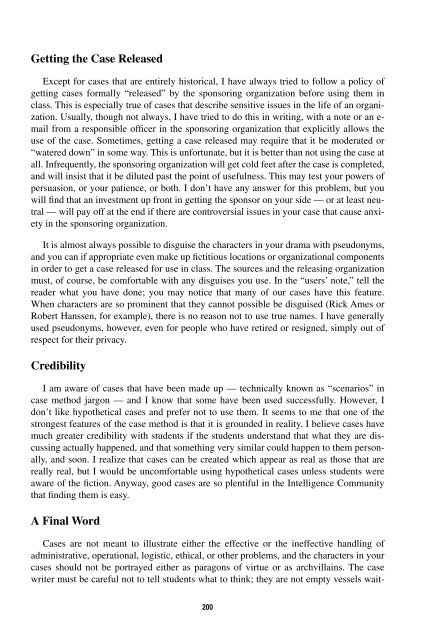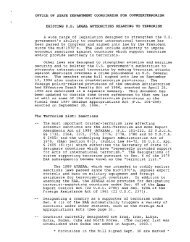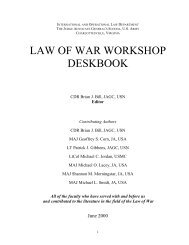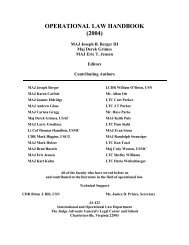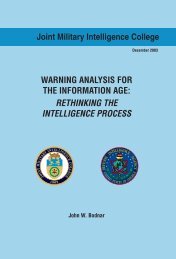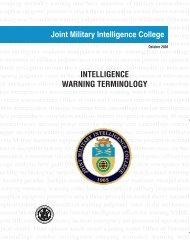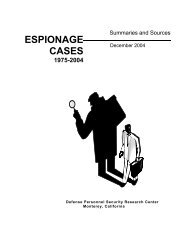learning with professionals - Higgins Counterterrorism Research ...
learning with professionals - Higgins Counterterrorism Research ...
learning with professionals - Higgins Counterterrorism Research ...
You also want an ePaper? Increase the reach of your titles
YUMPU automatically turns print PDFs into web optimized ePapers that Google loves.
Getting the Case Released<br />
Except for cases that are entirely historical, I have always tried to follow a policy of<br />
getting cases formally “released” by the sponsoring organization before using them in<br />
class. This is especially true of cases that describe sensitive issues in the life of an organization.<br />
Usually, though not always, I have tried to do this in writing, <strong>with</strong> a note or an email<br />
from a responsible officer in the sponsoring organization that explicitly allows the<br />
use of the case. Sometimes, getting a case released may require that it be moderated or<br />
“watered down” in some way. This is unfortunate, but it is better than not using the case at<br />
all. Infrequently, the sponsoring organization will get cold feet after the case is completed,<br />
and will insist that it be diluted past the point of usefulness. This may test your powers of<br />
persuasion, or your patience, or both. I don’t have any answer for this problem, but you<br />
will find that an investment up front in getting the sponsor on your side — or at least neutral<br />
— will pay off at the end if there are controversial issues in your case that cause anxiety<br />
in the sponsoring organization.<br />
It is almost always possible to disguise the characters in your drama <strong>with</strong> pseudonyms,<br />
and you can if appropriate even make up fictitious locations or organizational components<br />
in order to get a case released for use in class. The sources and the releasing organization<br />
must, of course, be comfortable <strong>with</strong> any disguises you use. In the “users’ note,” tell the<br />
reader what you have done; you may notice that many of our cases have this feature.<br />
When characters are so prominent that they cannot possible be disguised (Rick Ames or<br />
Robert Hanssen, for example), there is no reason not to use true names. I have generally<br />
used pseudonyms, however, even for people who have retired or resigned, simply out of<br />
respect for their privacy.<br />
Credibility<br />
I am aware of cases that have been made up — technically known as “scenarios” in<br />
case method jargon — and I know that some have been used successfully. However, I<br />
don’t like hypothetical cases and prefer not to use them. It seems to me that one of the<br />
strongest features of the case method is that it is grounded in reality. I believe cases have<br />
much greater credibility <strong>with</strong> students if the students understand that what they are discussing<br />
actually happened, and that something very similar could happen to them personally,<br />
and soon. I realize that cases can be created which appear as real as those that are<br />
really real, but I would be uncomfortable using hypothetical cases unless students were<br />
aware of the fiction. Anyway, good cases are so plentiful in the Intelligence Community<br />
that finding them is easy.<br />
A Final Word<br />
Cases are not meant to illustrate either the effective or the ineffective handling of<br />
administrative, operational, logistic, ethical, or other problems, and the characters in your<br />
cases should not be portrayed either as paragons of virtue or as archvillains. The case<br />
writer must be careful not to tell students what to think; they are not empty vessels wait-<br />
200


